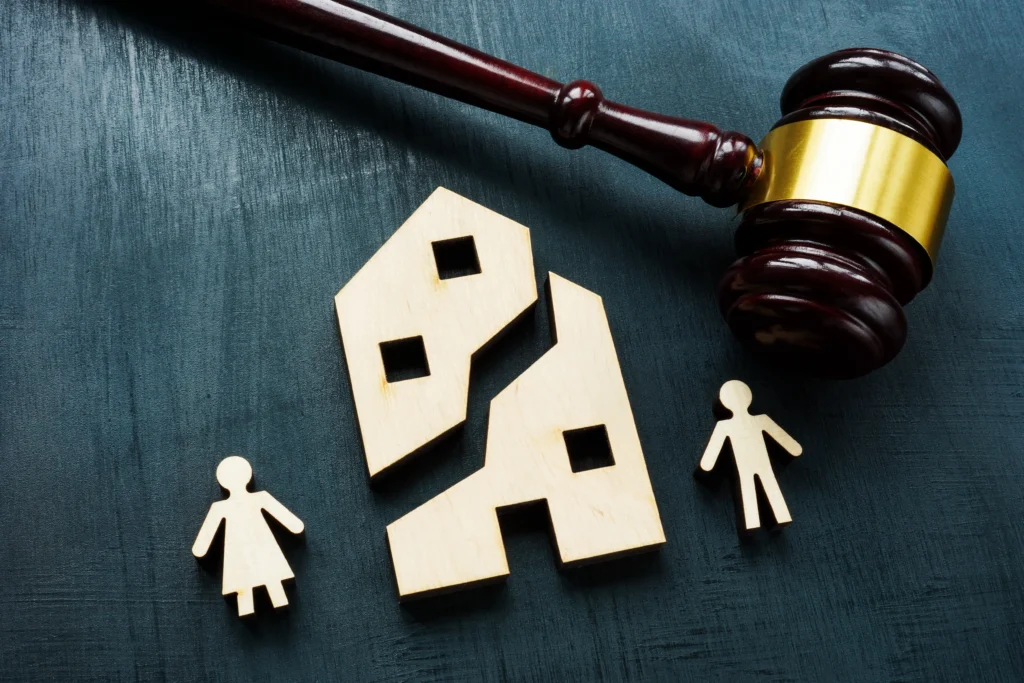
Whether the idea of divorce or separation has been simmering for months or the decision comes out of the blue, deciding to break up a marriage is one of life’s most challenging decisions. Once the words are spoken, it can feel like trying to control a snowball rolling downhill — hard to stop and even harder to steer. Suddenly, every decision looms large, and one of the first, and often most contentious, is: who stays in the house?
If you and your spouse can’t agree, you may find yourself asking: Can my husband or wife kick me out of the house during a Myrtle Beach divorce?
Can My Husband Kick Me Out?
It’s a common fear, especially for women who might be wondering how they’ll manage finances and living arrangements in the early days of divorce. The short answer is no—your husband cannot legally kick you out of your shared home in South Carolina without a court order.
Sure, the emotional tension is running high. You might want to stay in the home to find a bit of comfort and familiarity, or maybe you’re imagining a fresh start elsewhere. Either way, these early days are tough, and feeling sad, mad, scared, or all of the above is entirely normal. The good news? Things will improve, and understanding your legal rights is a powerful first step.
What to Do If Your Husband Throws You Out
If your husband tells you to leave or locks you out, here’s what you need to know: a court order is required to remove you from your home. South Carolina law allows for this in two scenarios:
- Domestic Violence: A spouse may be removed if there’s evidence of abuse or threats of harm. Under South Carolina’s Protection from Domestic Abuse Act, courts can temporarily assign control of the home to the abused spouse. These decisions can happen as quickly as 24 hours in emergencies or within 15 days otherwise.
- Fault-Based Divorce Grounds: A spouse can file for divorce on grounds such as adultery, physical cruelty, desertion, habitual drunkenness, or drug use. If the court grants a fault-based divorce, it can order the at-fault spouse to leave the home.
Without one of these court orders, you cannot be legally forced out of your home—regardless of who owns it or whose name is on the deed.
What If You Go Back Home?
Even if you’re able to return after being told to leave, living together under one roof while separated is no picnic. South Carolina requires couples to live apart for at least one year before a divorce is finalized. The stress of daily interactions with someone you’re divorcing can take a mental and emotional toll. If you’ve reached this point, it’s time to start considering options for separate living arrangements.
Can I Kick My Wife Out if I Own the House?
Owning the house doesn’t necessarily mean you can decide who stays. South Carolina treats any property acquired during the marriage as marital property, even if only one spouse’s name is on the paperwork. And even if the house was purchased before the marriage, the court may consider it partially marital property if the assets were commingled.
Bottom line: a court order is still required to remove your spouse.
Financial and Living Concerns During Separation
The financial and logistical challenges of separation can add stress to an already emotional time. Here are some key considerations:
- Who Pays the Mortgage?: If both names are on the mortgage, the court may assign payment responsibilities. Even if one spouse is ordered to pay, failing to follow through could impact the other’s credit. Establishing a legal agreement ensures clarity and protection.
- Temporary Housing: If living together isn’t an option, consider staying with family or renting temporarily. Filing an Order of Separate Maintenance and Support can help secure financial support while setting boundaries.
- Protect Your Assets: Some spouses may try to block access to finances or drain joint accounts. Work with an attorney to address these issues through court orders.
What Happens to My Share of the House If I Leave?
Leaving the home doesn’t mean giving up your claim. In most cases, South Carolina courts treat a house as joint marital property, and leaving doesn’t forfeit your rights. However, discussing your options with an attorney is crucial, especially if children are involved.
Planning Ahead (If You Can)
If you anticipate separation, a little preparation goes a long way. Consider:
- Setting aside emergency funds for groceries, rent, or other necessities.
- Avoiding large purchases or account withdrawals that could complicate the divorce.
- Securing sentimental items that might otherwise be damaged or sold during disputes.
Taking proactive steps, with the guidance of an experienced attorney, ensures you are ready for whatever comes next.
Moving Forward: Guidance for Horry County Separations and Divorces
The team at Indigo Family Law understands how overwhelming the early days of separation can be. Protecting your rights, your assets, and your peace of mind during this challenging time is our priority. Whether you’re navigating temporary living arrangements or preparing for a long-term plan, we’re here to help you every step of the way.
Schedule an appointment online or call us at 843-273-6758 today. Let’s work together to make this process as smooth as possible and help you move toward a brighter future.
